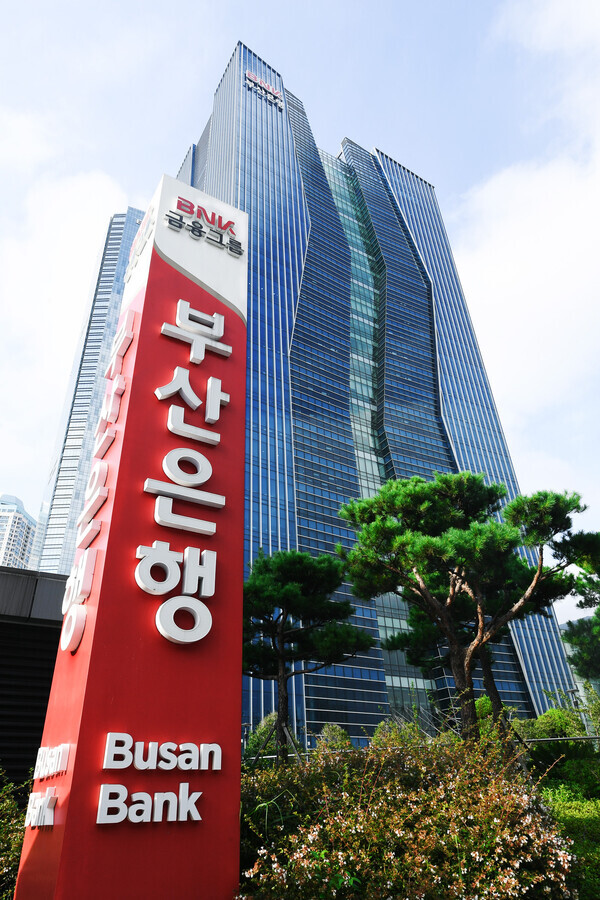
Busan Bank has solidified its position as a leader in social contribution among regional banks in South Korea, having spent ₩59.9 billion (approximately $43.5 million USD) on social contribution activities in 2023. This figure, released by the Korean Federation of Banks (KFB) in its '2024 Bank Social Contribution Activities Report' on May 30, positions Busan Bank at the forefront of regional financial institutions for its philanthropic efforts.
The bank's extensive social contribution initiatives in 2023 focused on several key areas, reflecting a commitment to community welfare and sustainable development. Notably, ₩28.7 billion was allocated to various public interest activities benefiting local communities. These initiatives included:
'Play On Busan': Cultural performances aimed at enriching the lives of local residents, fostering community engagement through arts and entertainment.
'Safety Umbrella Support': A program dedicated to enhancing child traffic safety by providing safety umbrellas, a practical measure to protect young pedestrians.
'Hospital Safety Escort Service': Support for elderly single-person households, ensuring safe accompaniment to and from medical appointments, addressing a critical need for vulnerable populations.
Beyond these direct community programs, Busan Bank also channeled substantial funds into other crucial areas. ₩22.9 billion was dedicated to supporting the retail finance sector, aiding individuals and small businesses with access to essential financial services. Furthermore, ₩6.2 billion was invested in the Mecenat (culture, arts, and sports) sector, underscoring the bank's role in fostering cultural vibrancy and athletic development within the region.
The total expenditure of ₩59.9 billion represents a significant 14.6% of Busan Bank's net profit for 2023. This demonstrates a strong dedication to corporate social responsibility (CSR) that goes beyond mere compliance, embedding philanthropy deeply into the bank's operational ethos.
This consistent commitment to social welfare is not new for Busan Bank. In 2022 (referred to as 2023 in the original, likely a typo for the reporting year), the bank also led the entire Korean banking sector, dedicating 14.5% of its net profit, totaling ₩54.8 billion, to social contribution activities. This track record highlights Busan Bank's sustained efforts to give back to the communities it serves, consistently ranking among the top financial institutions in terms of social investment relative to its earnings.
Broader Context of South Korean Banking CSR
Busan Bank's leading position reflects a broader trend within the South Korean banking sector towards increased social contribution. The KFB's annual reports aim to transparently disclose banks' efforts in fulfilling their corporate social responsibilities. In recent years, as financial institutions have grown, so too has the expectation for them to contribute to societal well-being beyond their core business functions. This includes supporting vulnerable populations, fostering regional development, promoting environmental sustainability, and investing in cultural and educational initiatives.
Korean banks collectively spent a substantial amount on social contribution activities in 2023. While specific cumulative figures for all banks in 2023 are yet to be fully detailed in public English reports beyond the KFB's general announcement, trends from previous years suggest a continuous increase. For instance, in 2022, all domestic banks combined spent a record ₩1.43 trillion (approximately $1.04 billion USD) on social contribution, marking a significant rise from previous years. This collective effort spans various initiatives, including financial support for low-income households, scholarships for students, environmental protection projects, and support for small and medium-sized enterprises (SMEs).
The emphasis on social contribution is also driven by regulatory expectations and public sentiment. Financial authorities encourage banks to play a more active role in addressing societal challenges, particularly in an era of economic uncertainty and growing social inequality. Banks are often seen as public institutions, given their critical role in the economy, and are thus expected to demonstrate strong ethical leadership and commitment to shared prosperity.
Busan Bank's specific focus on regional community activities, retail finance support, and cultural promotion aligns with the increasing importance of "localization" in CSR. Regional banks, by their very nature, are deeply embedded in their local economies and communities. Their social contributions directly impact the areas they serve, fostering a stronger connection with their customer base and enhancing their reputation as responsible corporate citizens. This localized approach allows for tailored programs that address the unique needs and challenges of specific regions, making their impact more tangible and effective.
Looking ahead, the trend of increasing social contribution by Korean banks is expected to continue. With growing calls for ethical finance and sustainable business practices, financial institutions like Busan Bank are likely to further integrate CSR into their strategic planning, seeking innovative ways to create shared value for both their stakeholders and society at large. This commitment will be crucial in building public trust and ensuring the long-term sustainability of the banking sector in South Korea.
[Copyright (c) Global Economic Times. All Rights Reserved.]






























